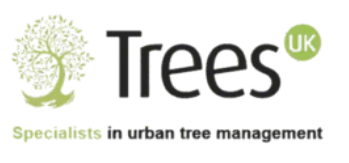Witney technical SEO audit agency
Is growing your online visibility harder than you thought?
Get the clarity you need with an actionable roadmap to bigger gains, more revenue, and sustained growth
TECHNICAL SEO AUDIT services Witney
What a technical SEO audit actually gives you
Most websites don’t suffer from one big problem. They suffer from many small issues that compound to significantly hinder performance.
A technical SEO audit brings all the issues effecting your site into focus, so you can make smarter decisions about where to allocate time, budget and effort for maximum impact.
You’ll get:
- A clear, prioritised list of actions
- A roadmap to a faster, easier to use website
- Solid foundations for future growth
- Early warning for hidden issues
- Evidence to base decisions on
- Confidence on what to do next
All with no obligation to retain us: the audit is designed to support decision-making, not lock you into ongoing services.
TECHNICAL SEO AUDIT clients
Audits scaled to the needs of your business
























Our TECHNICAL SEO AUDIT process
What happens when you choose one of our audits
Our comprehensive audits cover all aspects of technical SEO best practice, from the obvious issues to the hidden inefficiencies holding your site back. We combine industry-leading tools with decades of industry insight to identify the problems that matter most.
Build an understanding of your goals and context
We start with a conversation about where your business is now and where you want to go. We’ll cover the issues you’ve noticed, the reasons you've commissioned an audit, and what decisions the audit needs to support.
Send us a message or book a call with an SEO expert get the conversation started
Agree the audit scope
Every site is different. We define the scope of the audit upfront so it’s aligned with your priorities, site complexity, and growth goals - no generic checklists or unnecessary work.
Best-practice technical review
We assess your site against current technical SEO best practice, identifying foundational issues that affect visibility, performance, and crawlability.
In-depth analysis
Where needed, we go further to investigate deeper technical blockers and patterns to build a complete, accurate picture of what’s really holding performance back.
User experience assessment
We review how real users experience your site, highlighting friction points, clarity issues, and usability problems that can undermine trust and conversion, even with solid technical foundations.
Actionable, prioritised report + walkthrough
You receive a clear, prioritised audit report with practical recommendations. The audit is yours to take away - implement it in-house, with another partner, or with us. We then walk you through the findings on a call or face-to-face, to answer questions and advise on the best path forward.
46 issues identified to strengthen local charity's online presence
Our complimentary audit identified 46 actionable improvements to align with SEO best practice and support organisation goals of increased event signups, registrations, and donations

Start with clarity
Commission a technical SEO audit to support confident decisions, clear priorities, and sustained growth.
Working with Plaudit has been a tremendous gift. We would thoroughly recommend their skills to any organisation.
Why choose Plaudit as your technical SEO audit agency partner?
You already know the value of getting your site’s foundations right. If you want expert eyes on your site followed by a clear, actionable, filler-free audit, get in touch.
✅ Fully bespoke audits
Websites are unique – audit findings should be as well. We skip the generic checklists to build a detailed understanding of your site and the issues getting in the way of your goals.
Instead of irrelevant info you’ll get a report you can trust filled with insights you can act on: from addressing root causes of low traffic and missed revenue to improving user experience and increasing conversions, the audit will be shaped around what your business needs.
✅ We’ll talk you through the findings
A common frustration with SEO audits is investing time and money only to be handed a jargon-heavy report with no clear link to real problems – low traffic, poor conversions, limited visibility – and no path forward.
That’s why we walk our clients through the findings in full: what we found, why it matters, and what to do next. You’ll have the chance to ask questions, clarify anything unclear, and gain the confidence to follow the roadmap we’ve laid out and unlock the business results it’s designed to deliver.
✅ Actionable fixes to carry forward
Our audits won’t leave you buried in jargon or wondering what to do next. Each recommendation is clear, specific, and prioritised, meaning you know what to tackle first, what can wait, and what to expect from each one.
Whether you’re planning to implement the recommendations in-house or work with a developer or SEO agency, the insights from your audit report and walkthrough call will give you everything you need to move forward with clarity and control.
✅ Quick wins and long-term gains
SEO is a long-term investment, but that shouldn’t mean waiting months to see progress. Our technical audits let businesses tap into early lift from quick wins while laying the groundwork for lasting, sustainable website growth, visibility, and ROI.
This means no more guesswork, no more audits gathering dust, and no more wondering why your website isn’t performing. Instead, you’ll be moving forward with a faster, more visible site that’s finally bringing in the traffic, leads, and revenue your business deserves.
Some areas our technical SEO audits cover
Crawl errors
Crawl errors happen when search engines try to access a page on your site but are blocked or encounter issues. If key pages can’t be crawled, they won’t appear in search results – meaning missed opportunities for traffic and visibility.
This can be caused by broken links, missing pages, or technical restrictions like noindex tags or blocked resources.
Key Benefits
-
Ensures important pages are visible in search
-
Helps Google understand and navigate your site
-
Prevents lost traffic caused by technical barriers
Indexability
Just because a page exists and can be accessed doesn’t mean Google will include it in its search results. Indexability issues can easily go undetected, meaning valuable content isn’t being seen at all.
Pages can quietly slip through the cracks due to incorrect settings, duplication, or lack of authority.
Key Benefits
-
Gets your best content into Google’s search index
-
Improves discoverability of key pages
-
Stops silent performance drops caused by hidden issues
Competitor analysis
Understanding how your competitors perform technically can reveal opportunities to get ahead, not just catch up.
We benchmark your site against others in your space to identify where you can outperform them on speed, structure, mobile usability, and more.
Key Benefits
- Reveals gaps between you and your top competitors
-
Prioritises competitive advantage
-
Identifies industry benchmarks
Site speed & performance
Speed is one of the first things people (and search engines) notice. If your site takes too long to load, users are more likely to leave before even seeing your content, and Google may rank you lower.
Poor performance often stems from bulky images, bloated code, or slow servers, and can seriously impact engagement and conversion rates.
Key Benefits
-
Keeps visitors on your site longer
-
Improves search rankings, especially on mobile
-
Reduces bounce rates and lost sales or enquiries
Mobile-first design
With mobile traffic now dominating, your site needs to work seamlessly on smaller screens. If pages are hard to navigate, buttons too small to click, or layouts broken on phones or tablets, users will leave quickly – and so will your search visibility.
Google uses the mobile version of your site as the primary one for ranking, so it’s not optional.
Key Benefits
-
Enhances user experience across devices
-
Complies with mobile-first indexing requirements
-
Builds trust and improves engagement with mobile visitors
Core Web Vitals
Core Web Vitals measure how quickly and smoothly your site loads and responds to user input. They’re part of Google’s algorithm and reflect how pleasant (or frustrating) your site feels to use.
Issues like slow loading, shifting layouts, or delays when clicking can harm both rankings and user trust.
Key Benefits
-
Creates a fast, stable browsing experience
-
Supports better SEO through Google’s performance signals
-
Helps retain visitors and reduce abandonment
Redirects & broken links
Over time, websites evolve—pages get renamed, content moves, URLs change. If old pages aren’t redirected properly or links break, users can end up on error pages, and search engines waste time trying to follow dead ends.
Left unresolved, these issues reduce trust and waste the SEO value you’ve built.
Key Benefits
-
Keeps traffic flowing to the right pages
-
Preserves link equity and improves SEO performance
-
Strengthens the overall reliability of your website
URL structure & canonical tags
Clean, consistent URLs make it easier for users and search engines to understand and navigate your site.
But if your site creates multiple versions of the same page – or if canonical tags are missing or misused – Google can get confused about which version to rank. That can lead to diluted authority and missed opportunities.
Key Benefits
-
Avoids duplicate content issues
-
Clarifies the preferred version of each page
-
Supports better visibility and cleaner navigation paths
Schema markup / structured data
Structured data helps search engines understand the context of your content: what it is, how it’s meant to be used, and what kind of result it should appear as.
Adding this extra information can unlock rich results like star ratings, product info, event details, and more. If it’s missing or broken, you’re leaving valuable real estate on the table.
Key Benefits
-
Makes your listings stand out with rich search features
-
Increases clicks by providing more useful information
-
Helps Google understand and properly rank your content
Sitemap & robots.txt
Your sitemap tells search engines what pages to crawl, while your robots.txt file tells them what to avoid. Together, they form the roadmap for how search engines navigate your site.
If these two are out of sync – or if either is misconfigured – you might be blocking important content or wasting crawl time on things that don’t matter.
Key Benefits
-
Guides Google to your most valuable pages
-
Prevents accidental hiding of important content
-
Improves crawl efficiency and reduces technical confusion
Site structure & internal linking
A well-organised site structure helps visitors and search engines find what they’re looking for quickly. If your most valuable pages are buried too deep or disconnected from the rest of the site, they’re unlikely to get traffic or rank well.
Internal links act as signposts: if they’re missing or unclear, your whole site suffers.
Key Benefits
-
Surfaces high-value pages and improves discoverability
-
Helps Google understand relationships between pages
-
Supports better user journeys and engagement
Content Freshness & Index Bloat
Over time, websites can become cluttered with thin, duplicated, or outdated content that adds little value.
Search engines may reduce rankings for bloated sites, especially if outdated pages dominate the crawl. A technical audit helps identify what to improve, merge, or remove, so your best content stands out.
Key Benefits
-
Improves overall content quality signals for SEO
-
Helps search engines focus on what matters
-
Reduces crawl waste and boosts performance site-wide
HTTPS & Security Configurations
HTTPS is now a standard requirement for good SEO and user trust. But there’s more to it than just having a valid SSL certificate: misconfigurations like mixed content errors, outdated security protocols, or improper redirects can weaken your site’s authority and create friction for visitors.
Key Benefits
-
Builds trust with users and search engines alike
-
Prevents security warnings and browser blocking
-
Supports compliance with modern SEO and web standards
Crawl errors happen when search engines try to access a page on your site but are blocked or encounter issues. If key pages can’t be crawled, they won’t appear in search results – meaning missed opportunities for traffic and visibility.
This can be caused by broken links, missing pages, or technical restrictions like noindex tags or blocked resources.
Key Benefits
-
Ensures important pages are visible in search
-
Helps Google understand and navigate your site
-
Prevents lost traffic caused by technical barriers
Just because a page exists and can be accessed doesn’t mean Google will include it in its search results. Indexability issues can easily go undetected, meaning valuable content isn’t being seen at all.
Pages can quietly slip through the cracks due to incorrect settings, duplication, or lack of authority.
Key Benefits
-
Gets your best content into Google’s search index
-
Improves discoverability of key pages
-
Stops silent performance drops caused by hidden issues
Understanding how your competitors perform technically can reveal opportunities to get ahead, not just catch up.
We benchmark your site against others in your space to identify where you can outperform them on speed, structure, mobile usability, and more.
Key Benefits
- Reveals gaps between you and your top competitors
-
Prioritises competitive advantage
-
Identifies industry benchmarks
Speed is one of the first things people (and search engines) notice. If your site takes too long to load, users are more likely to leave before even seeing your content, and Google may rank you lower.
Poor performance often stems from bulky images, bloated code, or slow servers, and can seriously impact engagement and conversion rates.
Key Benefits
-
Keeps visitors on your site longer
-
Improves search rankings, especially on mobile
-
Reduces bounce rates and lost sales or enquiries
With mobile traffic now dominating, your site needs to work seamlessly on smaller screens. If pages are hard to navigate, buttons too small to click, or layouts broken on phones or tablets, users will leave quickly – and so will your search visibility.
Google uses the mobile version of your site as the primary one for ranking, so it’s not optional.
Key Benefits
-
Enhances user experience across devices
-
Complies with mobile-first indexing requirements
-
Builds trust and improves engagement with mobile visitors
Core Web Vitals measure how quickly and smoothly your site loads and responds to user input. They’re part of Google’s algorithm and reflect how pleasant (or frustrating) your site feels to use.
Issues like slow loading, shifting layouts, or delays when clicking can harm both rankings and user trust.
Key Benefits
-
Creates a fast, stable browsing experience
-
Supports better SEO through Google’s performance signals
-
Helps retain visitors and reduce abandonment
Over time, websites evolve—pages get renamed, content moves, URLs change. If old pages aren’t redirected properly or links break, users can end up on error pages, and search engines waste time trying to follow dead ends.
Left unresolved, these issues reduce trust and waste the SEO value you’ve built.
Key Benefits
-
Keeps traffic flowing to the right pages
-
Preserves link equity and improves SEO performance
-
Strengthens the overall reliability of your website
Clean, consistent URLs make it easier for users and search engines to understand and navigate your site.
But if your site creates multiple versions of the same page – or if canonical tags are missing or misused – Google can get confused about which version to rank. That can lead to diluted authority and missed opportunities.
Key Benefits
-
Avoids duplicate content issues
-
Clarifies the preferred version of each page
-
Supports better visibility and cleaner navigation paths
Structured data helps search engines understand the context of your content: what it is, how it’s meant to be used, and what kind of result it should appear as.
Adding this extra information can unlock rich results like star ratings, product info, event details, and more. If it’s missing or broken, you’re leaving valuable real estate on the table.
Key Benefits
-
Makes your listings stand out with rich search features
-
Increases clicks by providing more useful information
-
Helps Google understand and properly rank your content
Your sitemap tells search engines what pages to crawl, while your robots.txt file tells them what to avoid. Together, they form the roadmap for how search engines navigate your site.
If these two are out of sync – or if either is misconfigured – you might be blocking important content or wasting crawl time on things that don’t matter.
Key Benefits
-
Guides Google to your most valuable pages
-
Prevents accidental hiding of important content
-
Improves crawl efficiency and reduces technical confusion
A well-organised site structure helps visitors and search engines find what they’re looking for quickly. If your most valuable pages are buried too deep or disconnected from the rest of the site, they’re unlikely to get traffic or rank well.
Internal links act as signposts: if they’re missing or unclear, your whole site suffers.
Key Benefits
-
Surfaces high-value pages and improves discoverability
-
Helps Google understand relationships between pages
-
Supports better user journeys and engagement
Over time, websites can become cluttered with thin, duplicated, or outdated content that adds little value.
Search engines may reduce rankings for bloated sites, especially if outdated pages dominate the crawl. A technical audit helps identify what to improve, merge, or remove, so your best content stands out.
Key Benefits
-
Improves overall content quality signals for SEO
-
Helps search engines focus on what matters
-
Reduces crawl waste and boosts performance site-wide
HTTPS is now a standard requirement for good SEO and user trust. But there’s more to it than just having a valid SSL certificate: misconfigurations like mixed content errors, outdated security protocols, or improper redirects can weaken your site’s authority and create friction for visitors.
Key Benefits
-
Builds trust with users and search engines alike
-
Prevents security warnings and browser blocking
-
Supports compliance with modern SEO and web standards
Technical SEO audit FAQs
Still got questions? Take a look at our FAQs below or get in touch and we'll be happy to help.
A technical SEO audit is a comprehensive health check for your website. It looks under the bonnet to check things are set up in a way that lets search engines properly crawl, index, and rank your pages. It looks at things like site speed, mobile responsiveness, internal linking, duplicate content, and structured data.
Put simply, it’s about making sure your website’s foundations are solid, so your content can perform the way it deserves to.
The process for a technical SEO audit varies depending on your goals, your level of expertise, how much time you have, and a million other factors.
In short, the process is to use tools like ahrefs, Google Search Console, Screaming Frog, schema markup validator, and so on to get insights into your site’s performance.
But when it comes to the audit process, the hard part isn’t getting the data: it’s knowing what data matters, what doesn’t, and what’s worth fixing first. Our audits cut through the noise, explain what’s holding your site back, and give you a clear, prioritised path forward.
Short answer: to unlock the performance your site is capable of, and bring in the traffic, leads, and revenue it deserves.
Longer answer: most websites weren’t built with long-term SEO in mind, and even if yours was, best practice evolves – what worked a few years ago might now be holding you back.
If your site is slow, hard to crawl, or structured poorly, its search performance will suffer. The likelihood of these things happening increases over time as sites grow and best practice shifts: a technical SEO audit helps you spot where things have drifted off course, and tells you how to fix them.
It depends on the scale and scope of your site, and you should be wary of anyone pushing one-size-fits-all pricing or instant “automated audits”. A good audit with tailored recommendations takes time, and a five-page website has very different needs to a 2,000+ page ecommerce store.
If you’re curious how much an audit would cost for your site, book a short discovery call and we’ll scope things out properly.
It depends on the size and complexity of your site, but we complete most audits within 5 to 10 working days.
For larger or more technically involved sites where more time is required you’ll know about this before we get started.
Technical SEO issues often hide in plain sight, and piecemeal fixes often just kick the can down the road. A full audit gives you the full picture so you can solve the causes of the problem rather than playing whack-a-mole with the symptoms.
If your site’s underperforming, the real reason to ask for a technical SEO audit is simple: it gives your business the clarity and direction to finally unlock the traffic, leads, and revenue it deserves.
Not necessarily: it depends on your goals. A technical SEO audit gives you a clear view of what’s working and what needs fixing – some businesses take that information and act on it in-house. Others ask us to help implement the fixes or provide ongoing support to stay ahead of future issues. We’re happy to be as hands-on or hands-off as you need.
We won’t make any changes to your site during the audit itself, so your it won’t be affected.
The tools and techniques we use to carry out our checks only require read-only access, and everything we recommend will be delivered in a report you can review before any action is taken.
We may ask for temporary, read-only access to Google Search Console and Google Analytics (if available), and sometimes your site backend via your CMS or hosting setup if there are known technical challenges. We’ll guide you through what’s needed and keep it simple, and all access is GDPR compliant.








